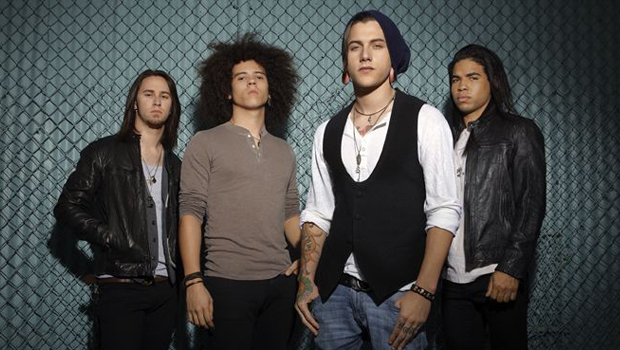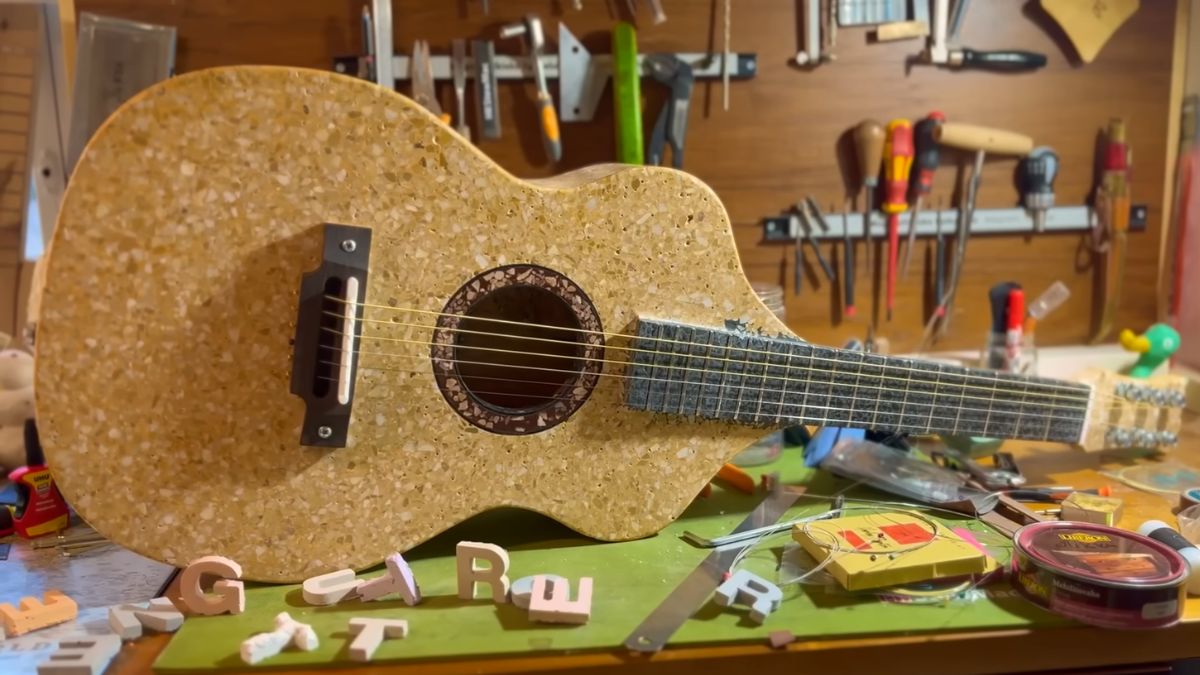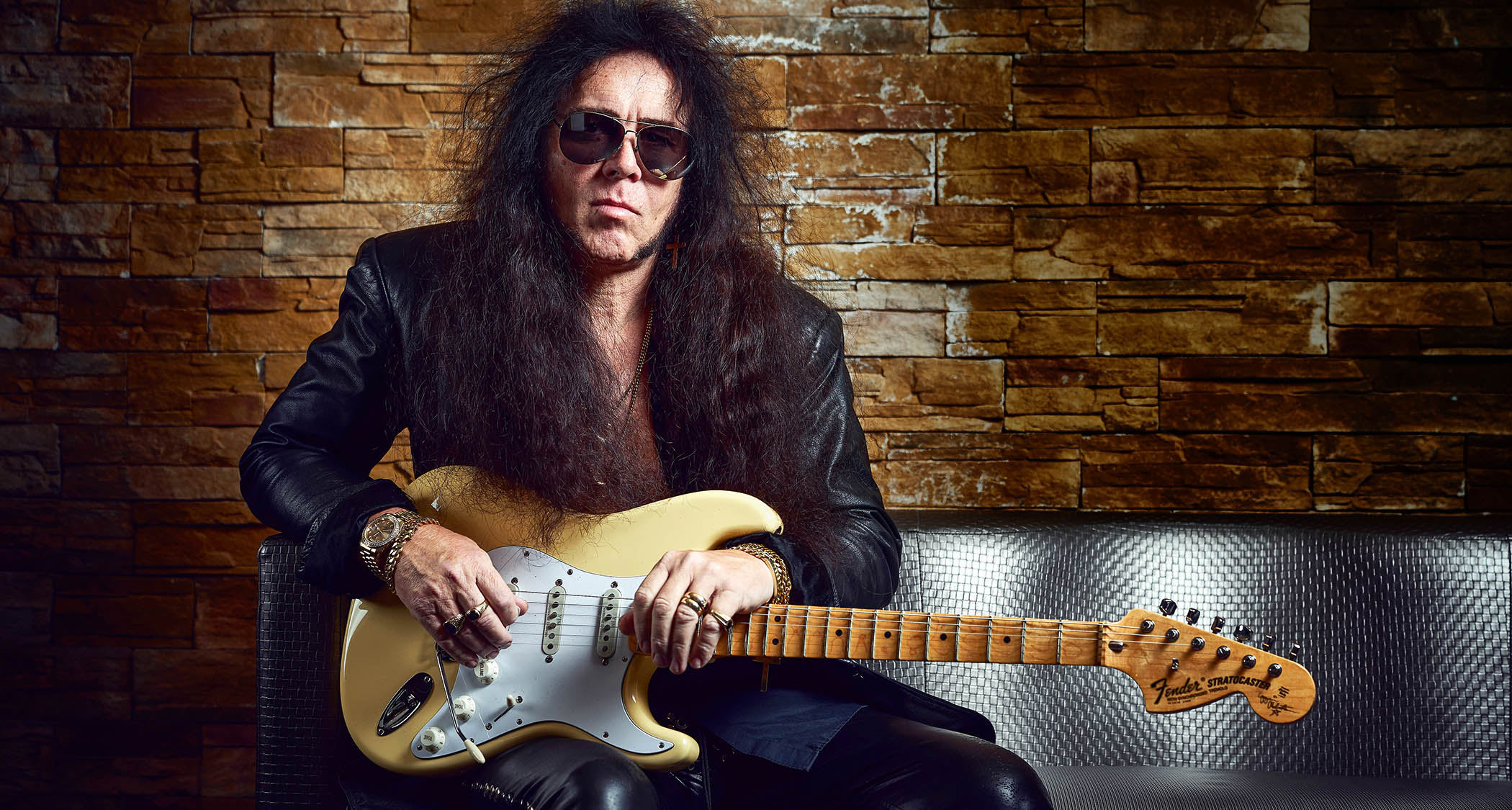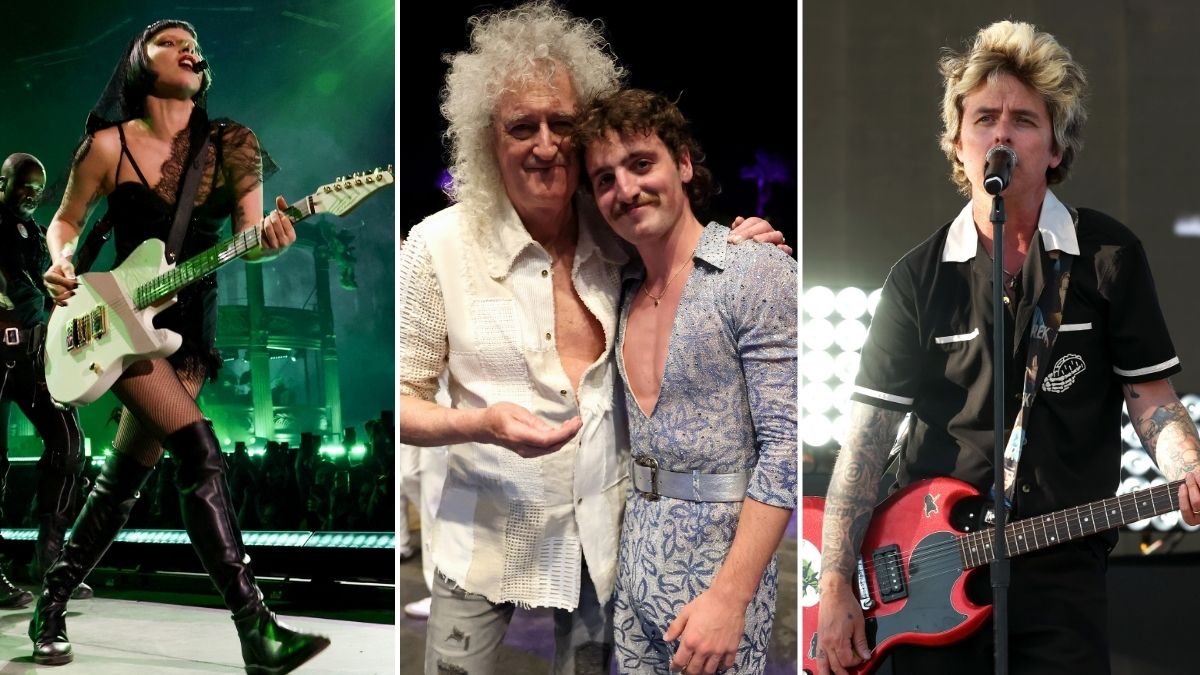
More than one journalist has commented about the Black Tide's new album, Post Mortem, saying the title of the record is an ill fit because of the ages of the musicians involved. But anyone being thrown into the music industry at the age of 14 and having to deal with critics, cynics, reviewers, tour managers, hangers-on and music industry bigwigs probably deserves a little space to reflect on the deeper aspects of life, don't you think?
On their sophomore album, it's clear that the guys in Black Tide have taken the past three years in good stride, using those experiences to produce an album that -- much like their first album -- sounds far more mature than their ages would let on. Tracks like "That Fire" and "Ashes" prove their meddle right along side the heavy hitters of modern metal, and songs like "Walking Dead Man" more than fulfill the shred quota required by the guitar junkies out there.
We recently caught up with Black Tide frontman Gabriel Garcia to talk about the band's new album. You can read out the full chat below, but first, check out this special video greeting the guys in Black Tide sent over especially for Guitar World...
So you guys have a new album coming out...
Yeah man, excited about that. Post Mortem, August 23.
It's been three years since your debut album, what have you guys been up to since then?
You know, man, it was just three years of going at it hard, touring everywhere in the world and working our asses off. It was a big learning experience for us. We went through some ups and downs. We had a lineup change.
Get The Pick Newsletter
All the latest guitar news, interviews, lessons, reviews, deals and more, direct to your inbox!
We toured and we learned, and all of that inspired this record, everything we went through with Light From Above.
You mentioned there was a lineup change in the band. What kind of change did Alex Nuñez's departure have on the band?
Honestly it had no impact. He was just kind of there. He didn't contribute anything to this band and that's mainly the reason why we kicked him out. We didn't get along and he didn't bring anything to the table, so the fact that he left just makes things way better.
At that point we were just a little distant from each other, but when Austin came in he was really the glue that got us all back together. Now we're more focused than ever and we're ready to kill this shit.
As always, there are some killer harmonies on this record. How do you guys go about working out those parts?
I love being in the studio and being able to fuck with shit, but this time around we really thought about how we were going to be able to pull it off live. During our first record, we didn't realize that; we were just excited and young and thought, "We'll just worry about that later." But you really have to think about it.
So this time around, we were like, "Let's make a record that we can pull off live."
The song "Ashes" has some really cool harmonized guitar parts on it, and when I first listened to it I got an Avenged Sevenfold/Bullet For My Valentine type vibe from it, and that was even before I heard that Matt [Tuck] from Bullet For My Valentine was actually on the track. How did that come about?
We were on tour with Bullet like 8 months ago and the record was already done -- we've been done with this record for almost 9 months now -- and it just happened that we were listening to the album on the back of their bus, and Matt was like, "I wish you would have hit me up to sing on the record." And we said, "Let's make this shit happen!"
We were two days away from a New York date, which is where we recorded the album, so we just hit up our producers and our managers and we just made it happen.
Speaking of the recording process, what was your gear set-up like on Post Mortem?
We had a couple different amps in there -- we had an Orange in there, a Bogner -- and we really tried to experiment some. For guitars I played an ESP, a Jackson, a Gibson...
In the studio, like I said, it's fun. You gotta do whatever you gotta do to get the best sounds.
How does your live set-up differ from your studio set-up?
I'm trying out the Peavey Butcher, and I'm playing an ESP Viper live right now.
One of the first big tracks to debut from the record is the song "That Fire," which strikes me as a very modern-sounding track for you guys, especially in contrast to the first album on which your Maiden influence was out in full force. How would you overall compare the sound of Post Mortem to your first record?
I would just say the biggest different between the two records is my voice changing -- I went from 14 to 18 years old, so obviously that was going to change. We opened up our minds to all kinds of stuff, listened to all sorts of music, and I think that played a subconcious role in there too.
We weren't thinking, "Oh, we want to make a metal record," or, "we want to make this kind of record." We just went in and wrote songs that we loved and just had a good time with it. "That Fire" was one of those songs on the record, it was a real playful song, and we just had a good time with that one.
Looks like you had a good time making the video too...
[Laughs] Nah man, it's a rough life. Having to lay in a bed with two hot girls -- it's rough. [laughs]
As you said, you were 14 at the time of your first record. What's been the biggest change in you since then?
There have just been so many moments that were just unreal. You know it didn't really start to hit me 'til this time around.
My first tour was the main stage of Ozzfest and when I was younger I just figured that's the way it was -- you get signed and you play Ozzfest. And it's really not that way at all. We sort of worked our way down, started playing club tours and working our way back to reality, you know?
Not 'til this time around did I really get to appreciate everything. We got do a few Maiden shows a few months back and we were direct support for them, and that's when I knew that we were so fucking lucky people to be able to do stuff like this. It's an honor.
The new album from Black Tide, Post Mortem, is out now!
Josh Hart is a former web producer and staff writer for Guitar World and Guitar Aficionado magazines (2010–2012). He has since pursued writing fiction under various pseudonyms while exploring the technical underpinnings of journalism, now serving as a senior software engineer for The Seattle Times.











